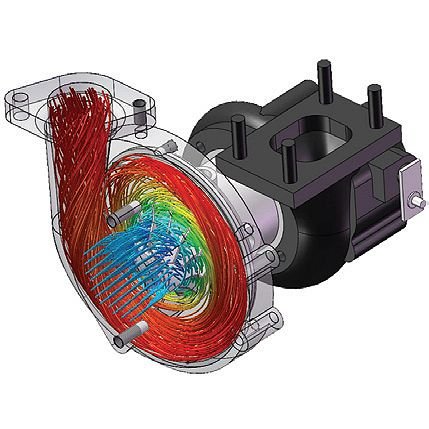Image source: https://aesgs.com/
We are excited to be working on yet another project with Advanced Engineering Services (AES). Their expertise in CFD simulation for thermal analysis is world-class. A common problem is the cooling of equipment in the electronics package and the associated ventilation system to evaluate the optimal operational conditions.
As modern electronic systems grow in complexity; they produce more heat. This heat must be removed to ensure system performance and reliability.
Primary Cooling Methods include:
Natural convection (passive cooling)
Forced convection (active cooling)
Liquid evaporation method
Liquid cooling method
CFD simulation has become a standard design tool for predicting accurately thermal performance of electronics cooling systems. Early, design-stage optimization of component location allows for fewer physical prototypes and a short design cycle. Fusion and its partners help customers achieve this.
Challenging environments that need thermal analysis:
Modern electronics contain components that measure in nanometers, and technology is poised to continue advancing to operate on even more minuscule form factors.
Cooling of large systems like mainframe computer systems, storage arrays, server farms, and network offices.
Cooling of office systems like high-performance workstations, desktop computers, and printers. Cooling solutions should be highly compact, quiet, and cost-effective designs.
Image source: https://aesgs.com/
Expertise:
Detailed PCB modeling for more accurate results
Liquid cooling system and cold plate design
Modeling of thermal CFD simulation
Heat sink performance optimization by varying the number of fins, fin height, and heat sink material
Modeling of package selection
Cooling channel design and thermal analysis
Additional analysis includes:
Shock and vibration analysis
Fatigue analysis
Creep analysis and thermal load of BGAs
Non-linear analysis of PCB assembly and bolt tension

